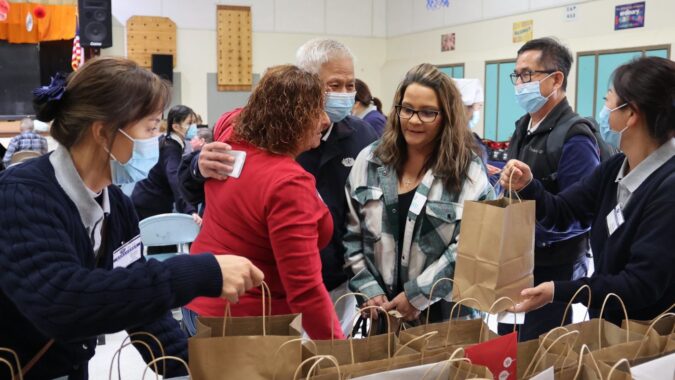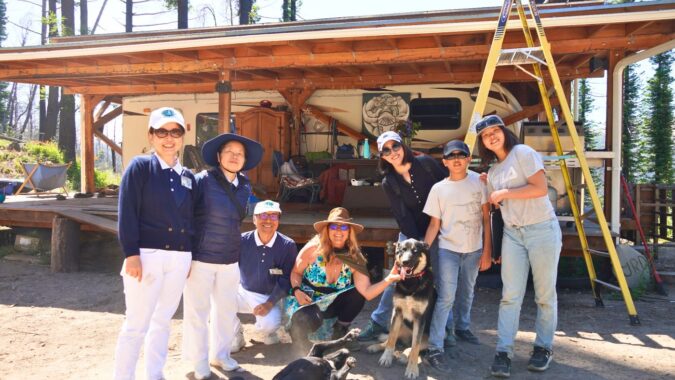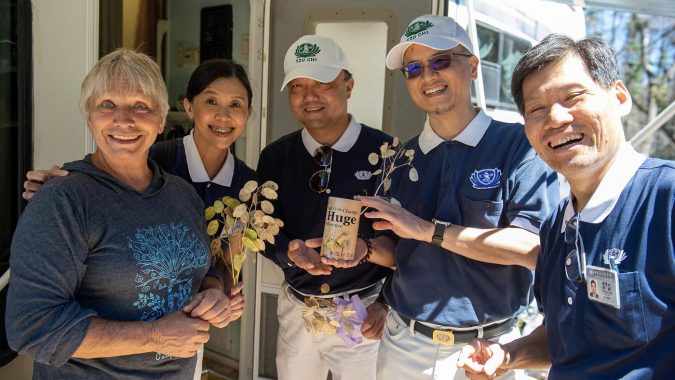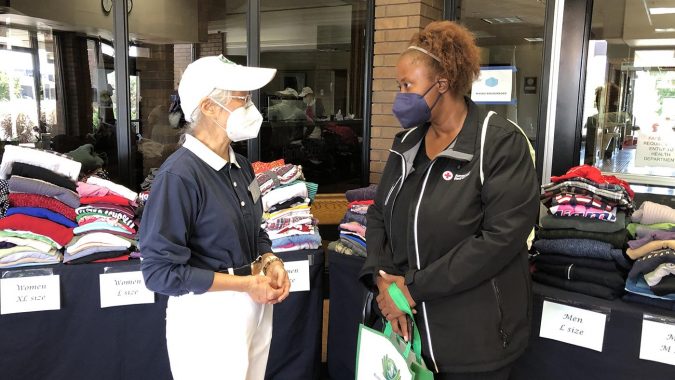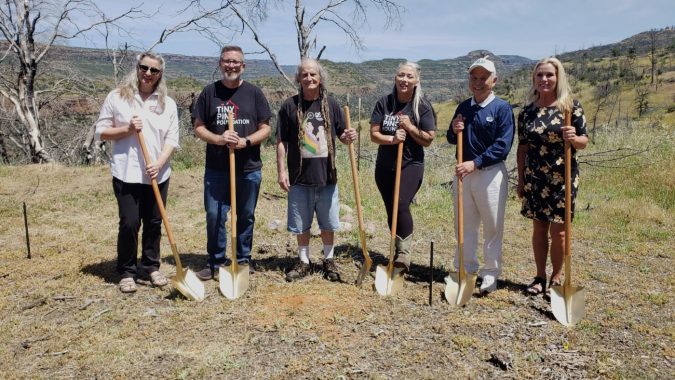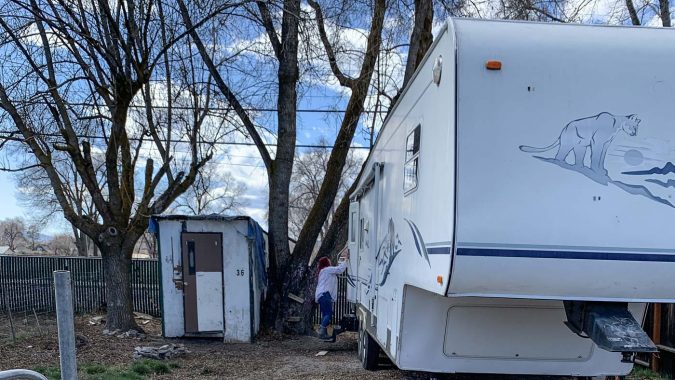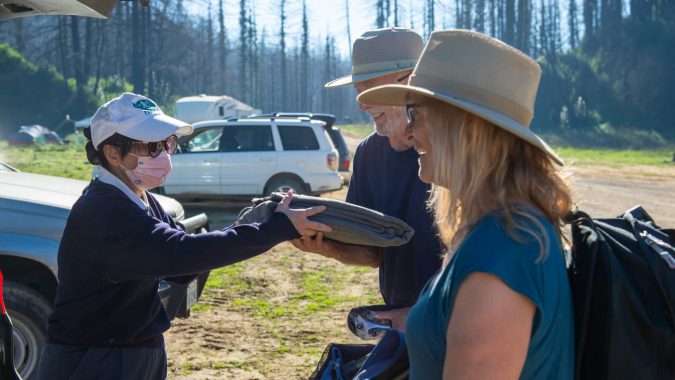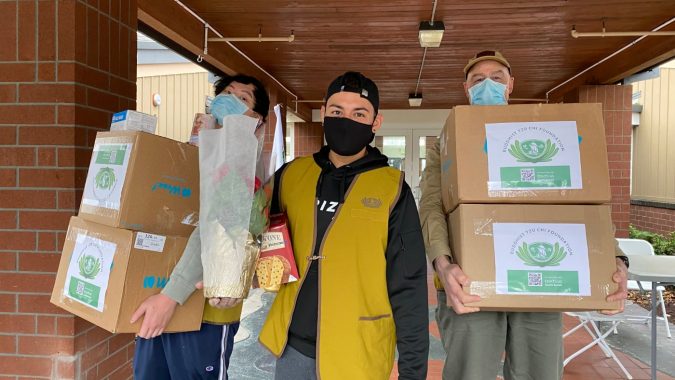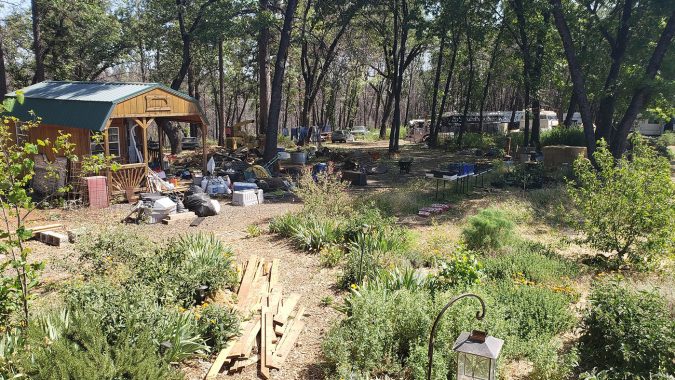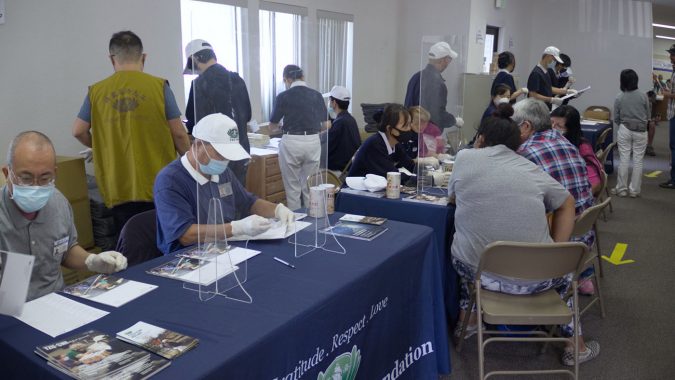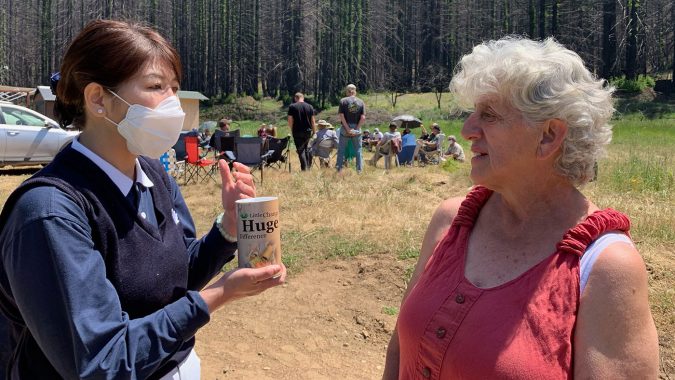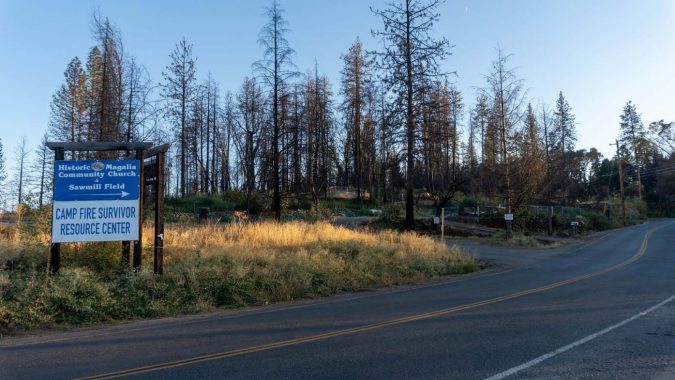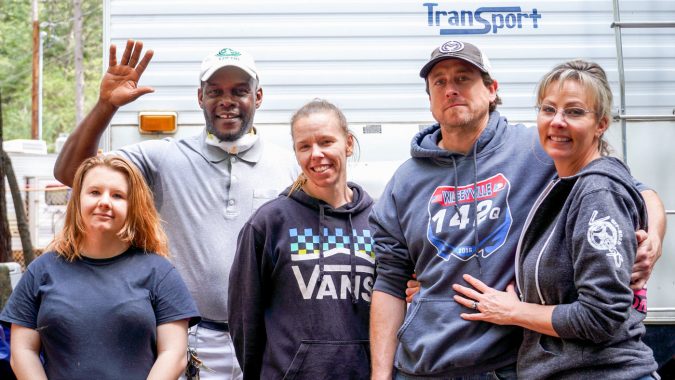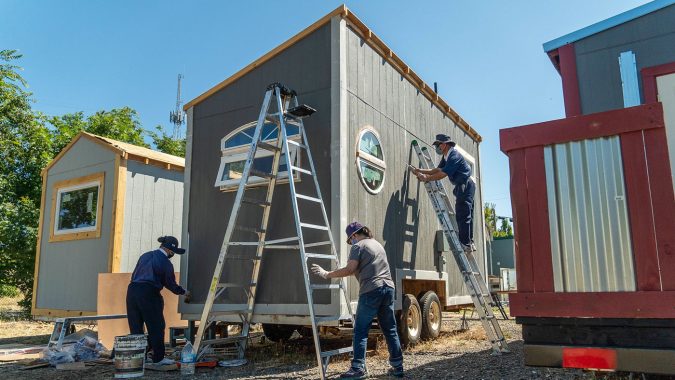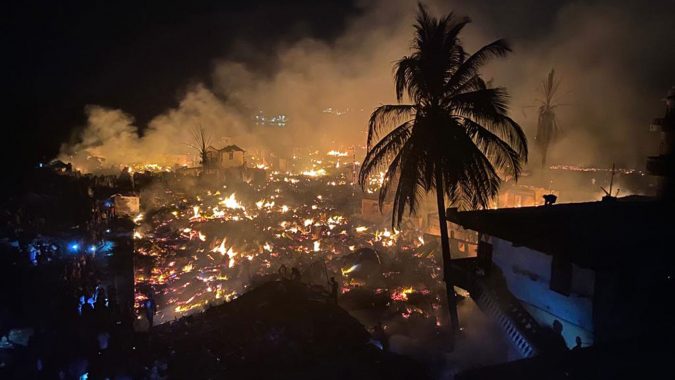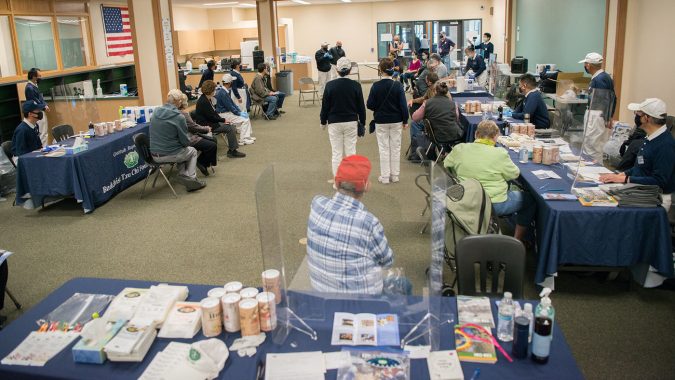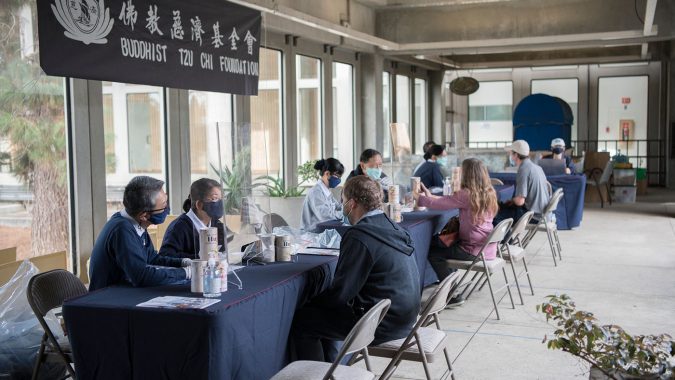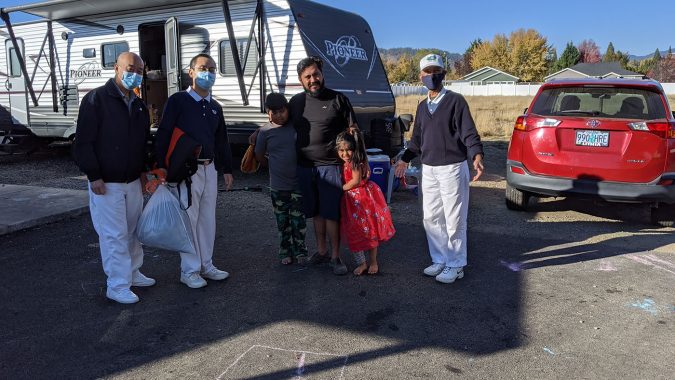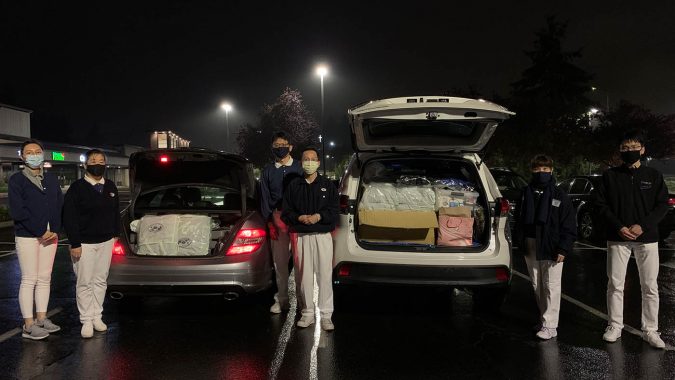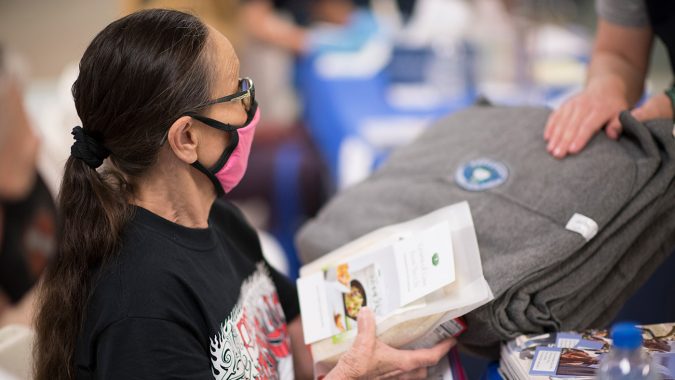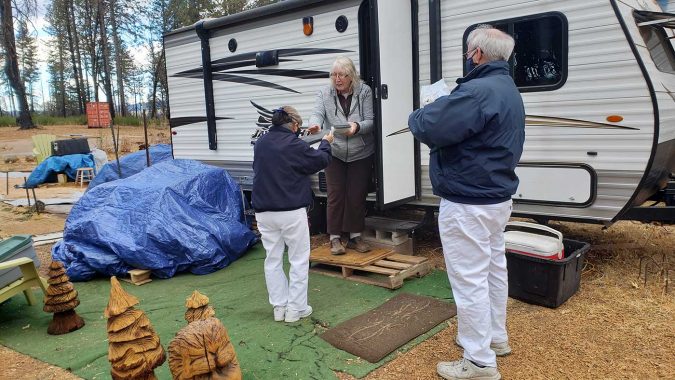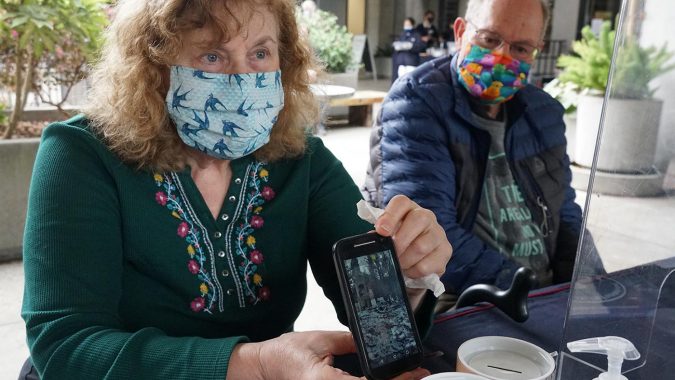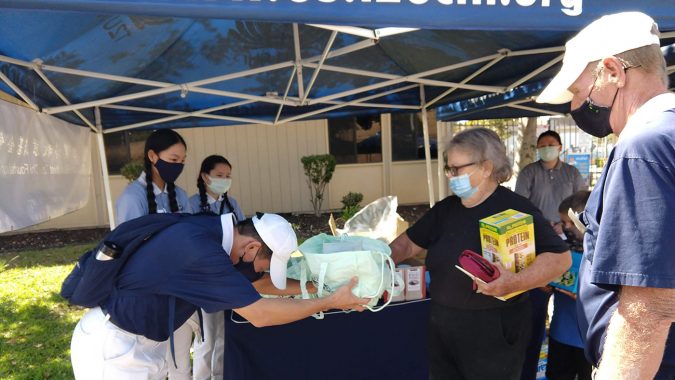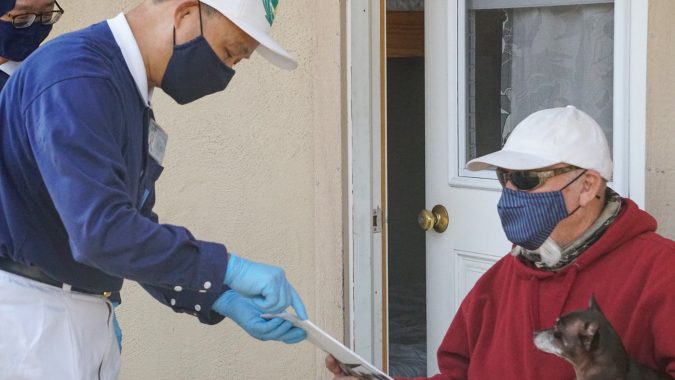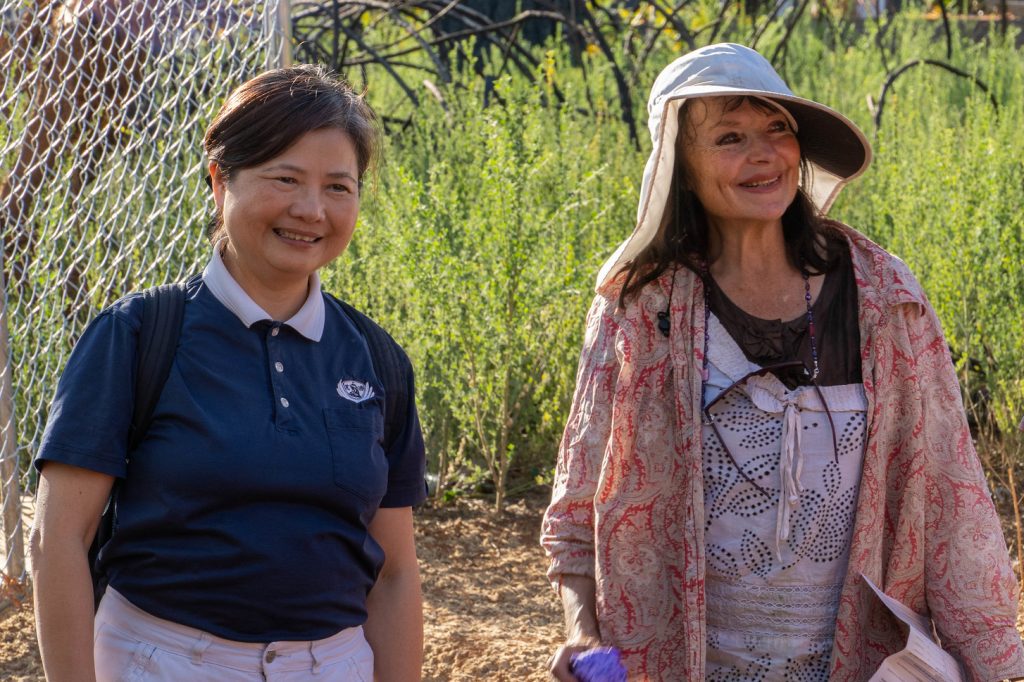
Author: Huan Xun Chan
Translated by Huan Xun Chan
Edited by Natasha Palance
Photos by Huan Xun Chan
It’s been a year since Camp Fire survivor, whose name will be referred to as “Anna”, lost her home to the flames. Anna has been sleeping in her car ever since. On November 9th, the day after the Camp Fire’s one-year memorial ceremony, Anna finally had a roof over her head thanks to assistance from one Tzu Chi volunteer – and just in time for the cold weather that lies ahead.
The 65-year-old has resided in the town of Paradise for decades, living in the house she inherited from her parents. In mid-July 2019 during a survivor outreach initiative, Deacon Anne Powell from St. John’s Episcopal Church in Chico contacted Tzu Chi volunteer Julie Lin requesting help on Anna’s case.
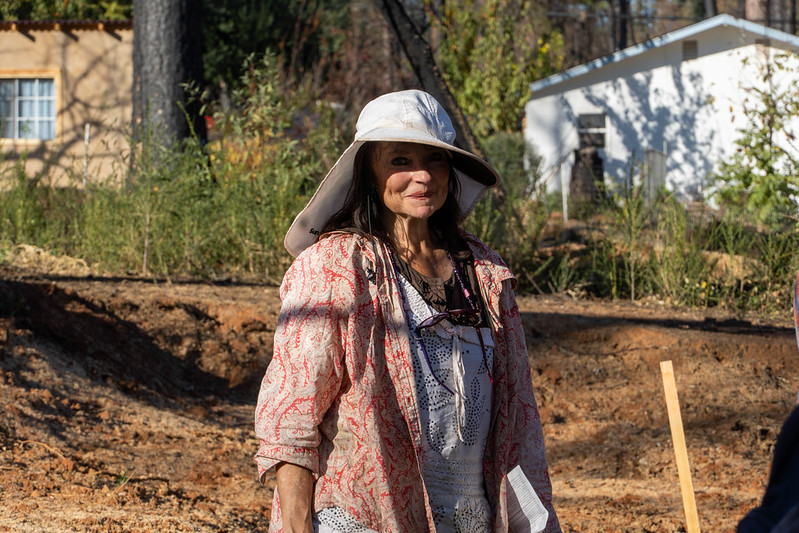
Julie was not the first disaster case manager who worked with Anna after the fire. Two weeks after the Camp Fire occurred, Anna reached out to a local charity organization and did an intake with a case manager. For various reasons, Anna had been served by two other agencies but had never received any financial aid until she met Julie.
When Julie met with Anna on July 26, she discerned that Anna is suffering from a mental health condition. As a result of her disabilities, Anna was neglected when she pursued aid at other agencies and was unable to access help. Through supportive tools and appropriate communication with assistance from Deacon, Julie was able to provide Anna with the aid she needed.
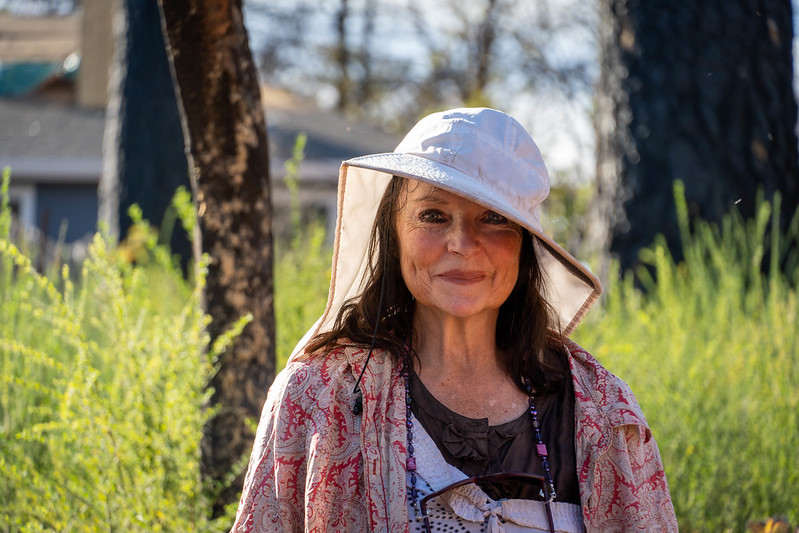
Before meeting Tzu Chi, Anna was living in her Honda car that she purchased with an insurance claim payment. Sundries hoarded the car interior — including the front passenger seat — blocking the rear-view mirror and the other three side-windows.
“I can’t imagine how she sleeps in this narrow space, just on the driver’s seat, night by night,” Julie said.
The scorching heat tortured residents living in Chico that summer. Julie realized that temperatures would reach 105°F in the following weekend, and became concerned for Anna’s safety in the stuffy, heated vehicle.
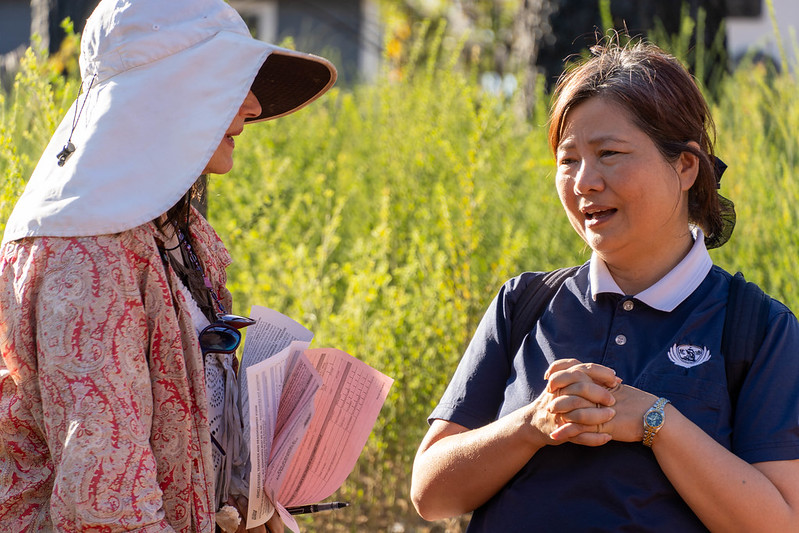
Right away, Julie applied for Tzu Chi’s emergency relief fund on Anna’s behalf, and provided her with temporary living accommodations at a motel in Chico. Julie paid for a 3-night stay; the most important thing at the present time was to keep Anna safe and healthy through the hottest weekend of the summer.
The disaster case management process went smoothly as Anna gradually opened her heart to Julie. She started to trust and rely on Julie. Julie shared, “She often asked me ‘Can you be my mom, please?’ At first, I really didn’t know how to respond when asked by a senior who is ten years older than me.”
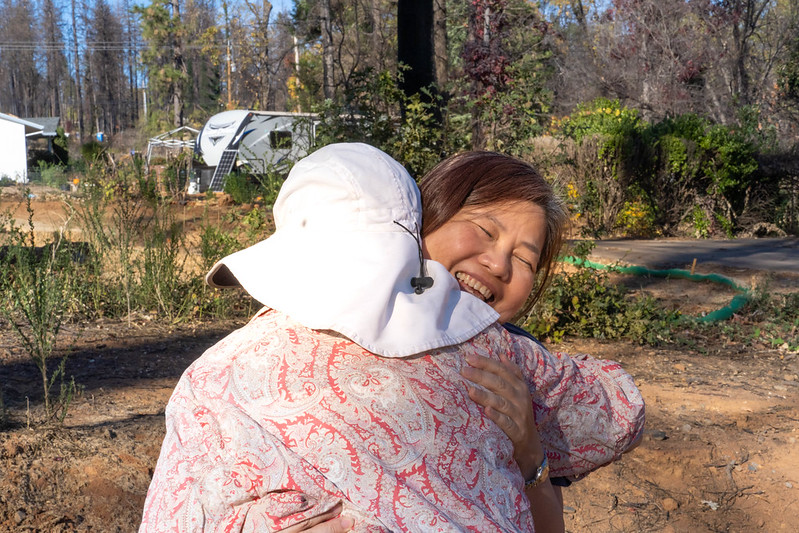
Throughout the fall, Julie had been looking for different possibilities and resources to help Anna rebuild. Over time, Julie and Anna developed a close bond. Every time a meeting came to an end, Anna would continue to talk and hardly let Julie go, even when Julie had already sat in the car and put her seat belt on.
With much excitement Anna often asked, “When can I see you next, Mrs. Julie? I hope I can see you soon. Maybe next week?”
For many Camp Fire survivors, the first steps of rebuilding is costly, which only further delays their journey of recovery. The costs of re-building permits range between $5,000-$8,000, and expenses don’t end there. Costs for repairing damaged infrastructure, including water and septic tanks, alone can require up to tens of thousands of dollars.
As many Camp Fire survivors can’t afford to rebuild their home or relocate, residents are provided with relief aid through multiple agencies. However, each fund is limited and many are still stuck waiting for help. Survivors can only apply for aid through one agency at a time, limiting the accessibility of the total amount of funds they can receive within a certain time period. This poses a debilitating restraint on recovery for mid to low income survivors.
As a senior living on Supplemental Security Income, rebuilding costs for Anna are an exorbitant price. “It’s hard,” Julie said. However, the first priority for Anna is to “get her a roof for the winter.”
Meanwhile, a young family relocated to Anderson, California after the Camp Fire ensued to start new beginnings. In mid-August, the second child of Luke and Carrie came into the world. The young couple named her Ember. With the help of disaster case management by Julie, they gradually settled into their new life.
After the fire destroyed their home, the family lived in a fifth-wheel trailer for a few months. Thanks to universal compassion, they now have a roof secured over their heads and no longer need the trailer. Luke had asked Julie for help to find a buyer.
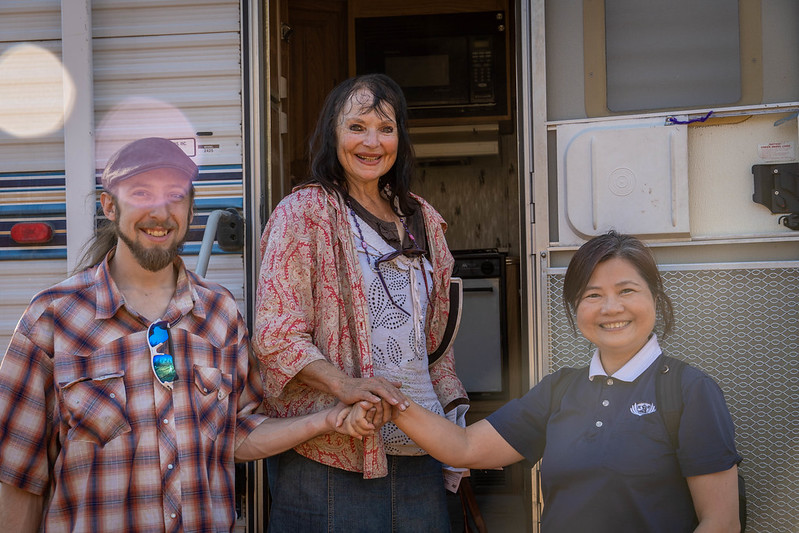
Julie then came up with a great idea — She would help Anna apply for a Camp Fire relief fund to buy the trailer; a payment that would greatly benefit Luke and Carrie in starting their new life.
It had been an uneasy process to acquire a trailer. However, at least for this winter, Anna will have a bed to sleep in, and a safe place to live and call home.
The afternoon after the Camp Fire Memorial, Luke scheduled the towing of the trailer to Anna’s property in Paradise. A red truck turned into Anna’s property, towing Anna’s future home towards her and Julie. After landing on the property, Luke and the driver helped to fix the trailer on the ground.
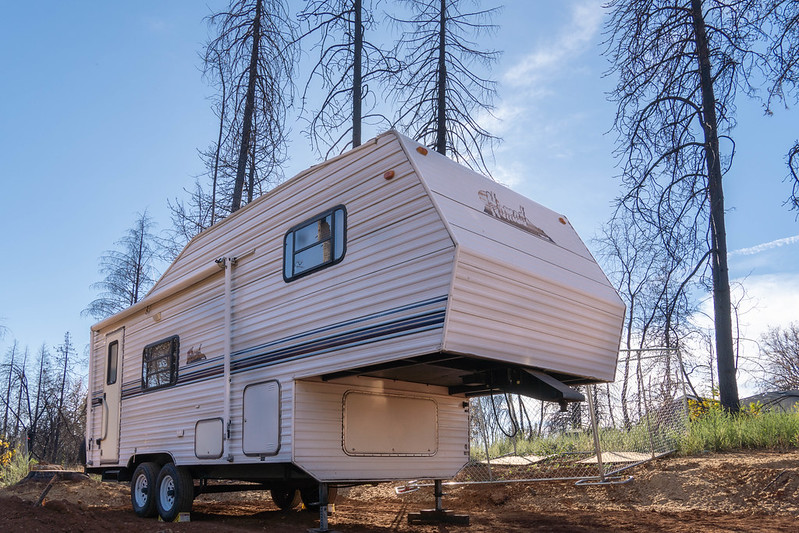
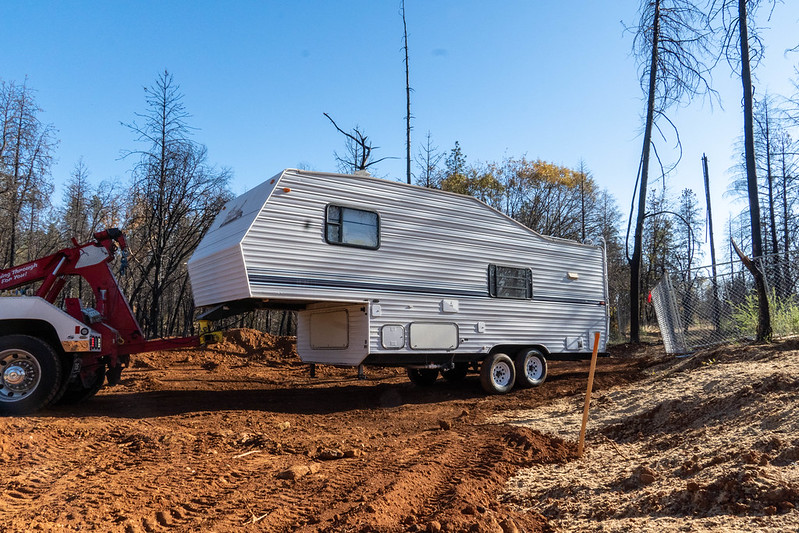
Luke took out the keys, and officially passed it to Anna. The next day, Anna beamed with joy and excitement about her new home.
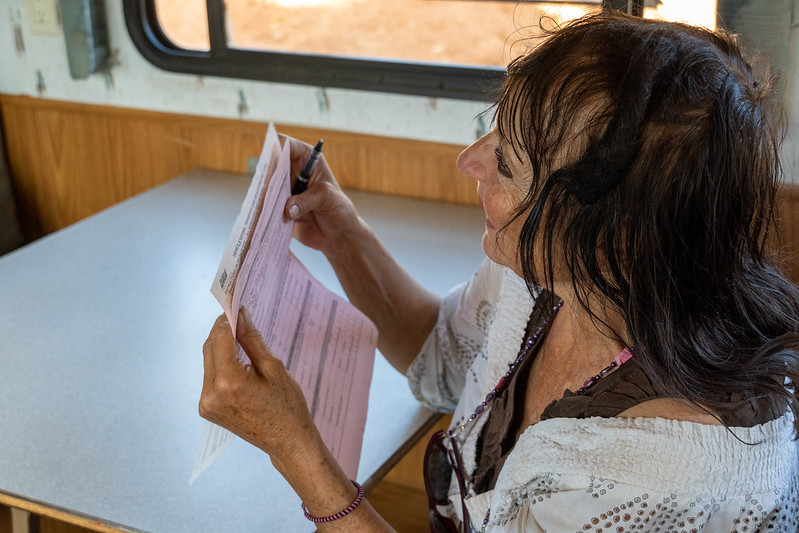
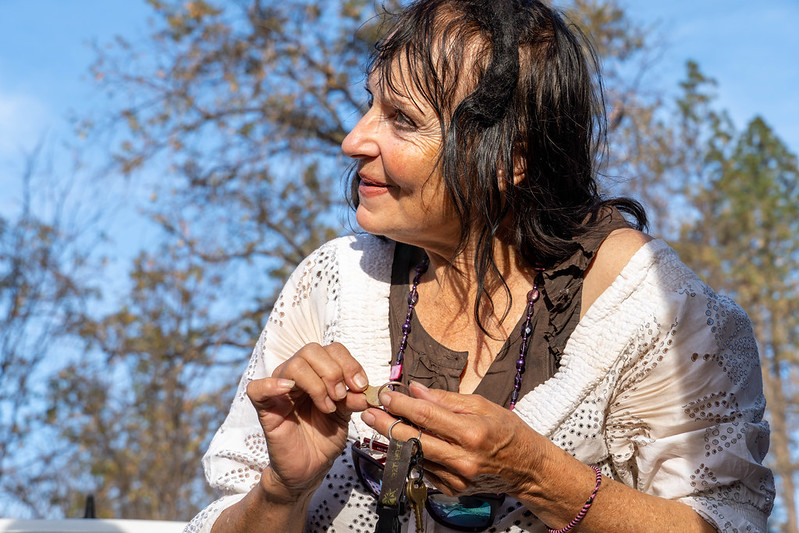
Julie and Luke helped Anna get acclimated as she adjusts to her new home, each demonstrating great compassion as this survivor gets rooted into her new home. The two assist Anna with structural components of the unit and in explaining some of the high-tech features of the new home, including a built-in radio.
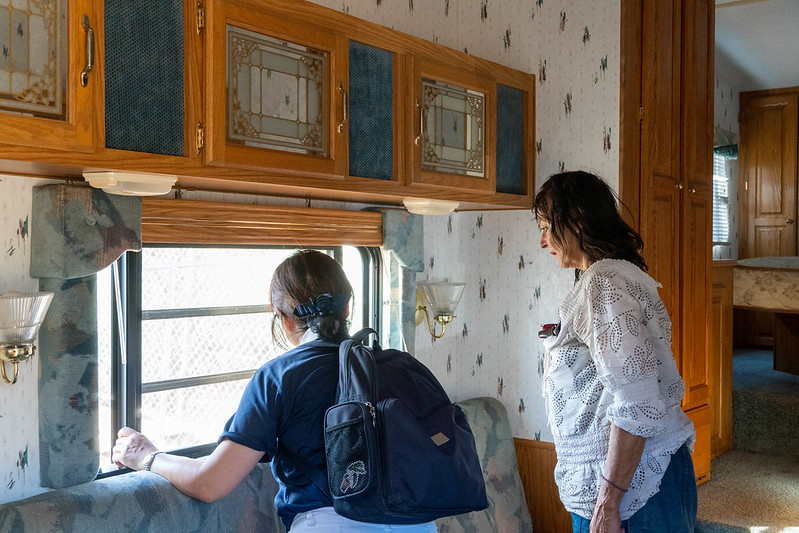
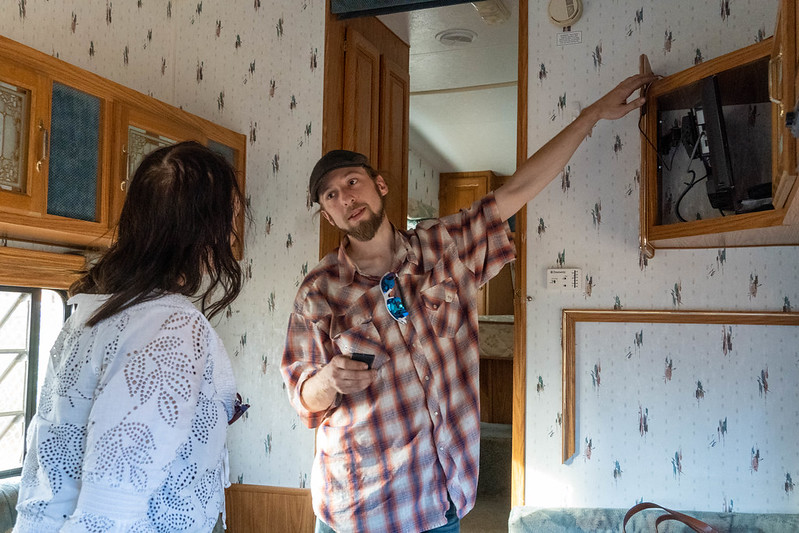
Below the stairs at the entrance of the trailer, loose soil made the structure uneven. Julie was worried that Anna would fall, so she stepped and hopped on the ground to make the soil even. Before leaving, Julie helped to clear out some left over trash remaining on the property. Similarly, Luke took extra precaution to ensure the unit was securely stabilized in the ground
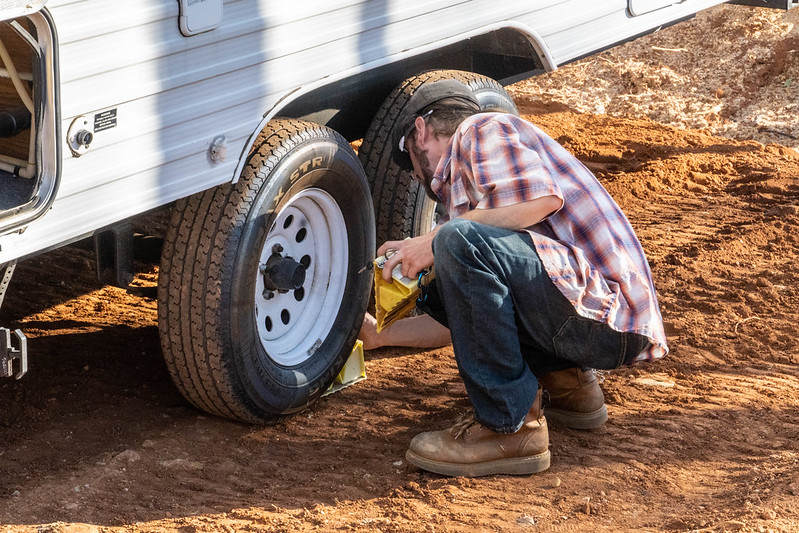
On the way back, with a big trash bag in the trunk of her car and dirt all over, Julie felt a deep sense of relief knowing that she had made a significant and meaningful impact in this survivor’s life. “Seeing Anna’s big smile, all the efforts are worth it,” she said.
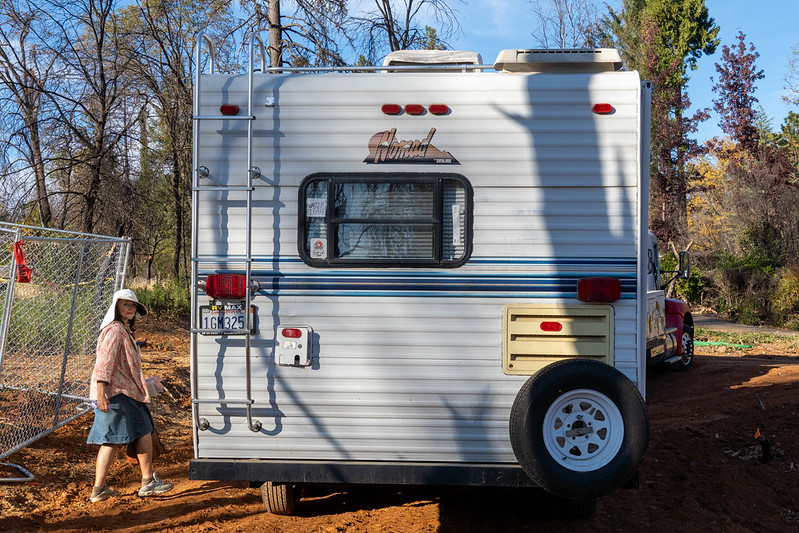
You too can make a difference, help deliver love to California wildfire survivors.

